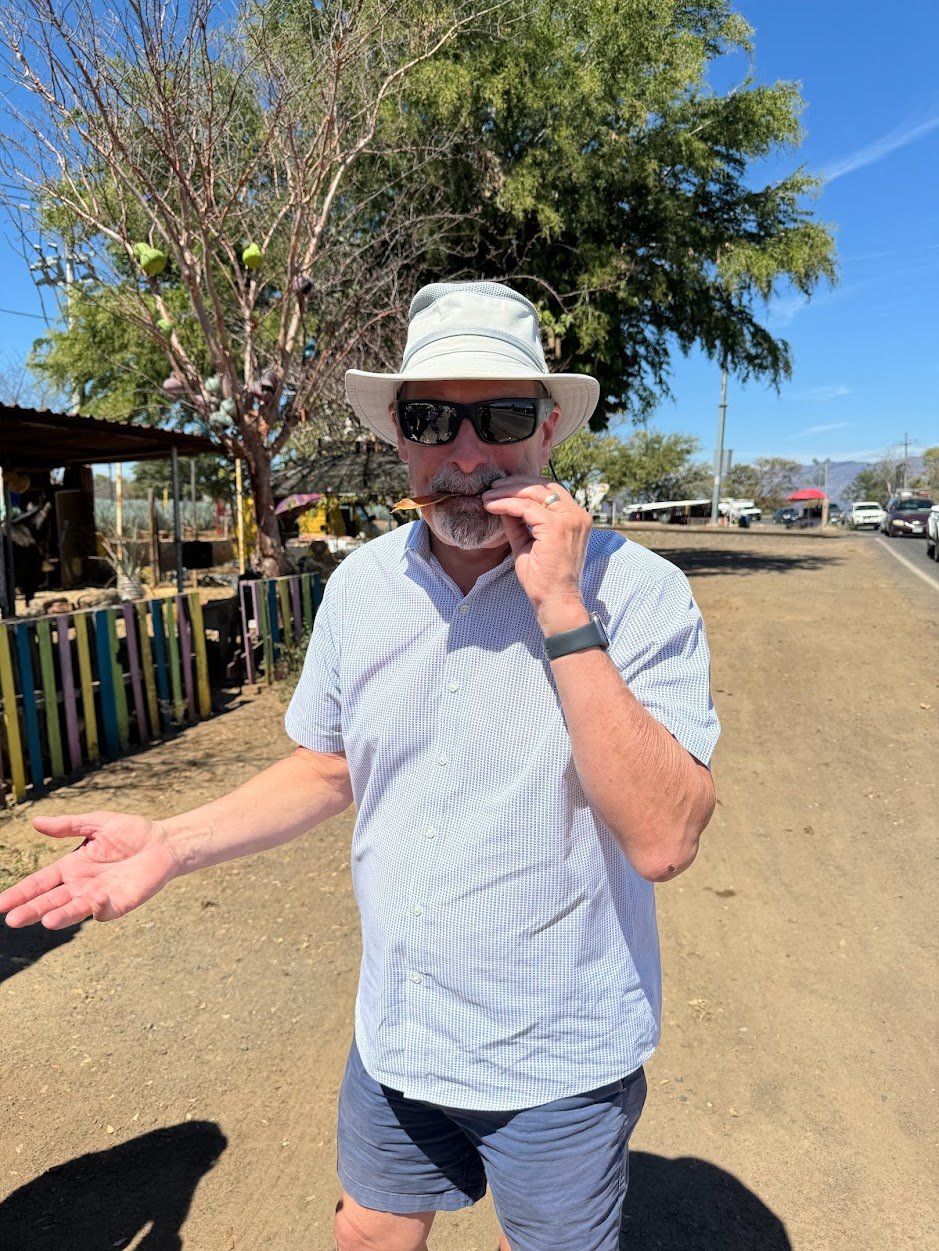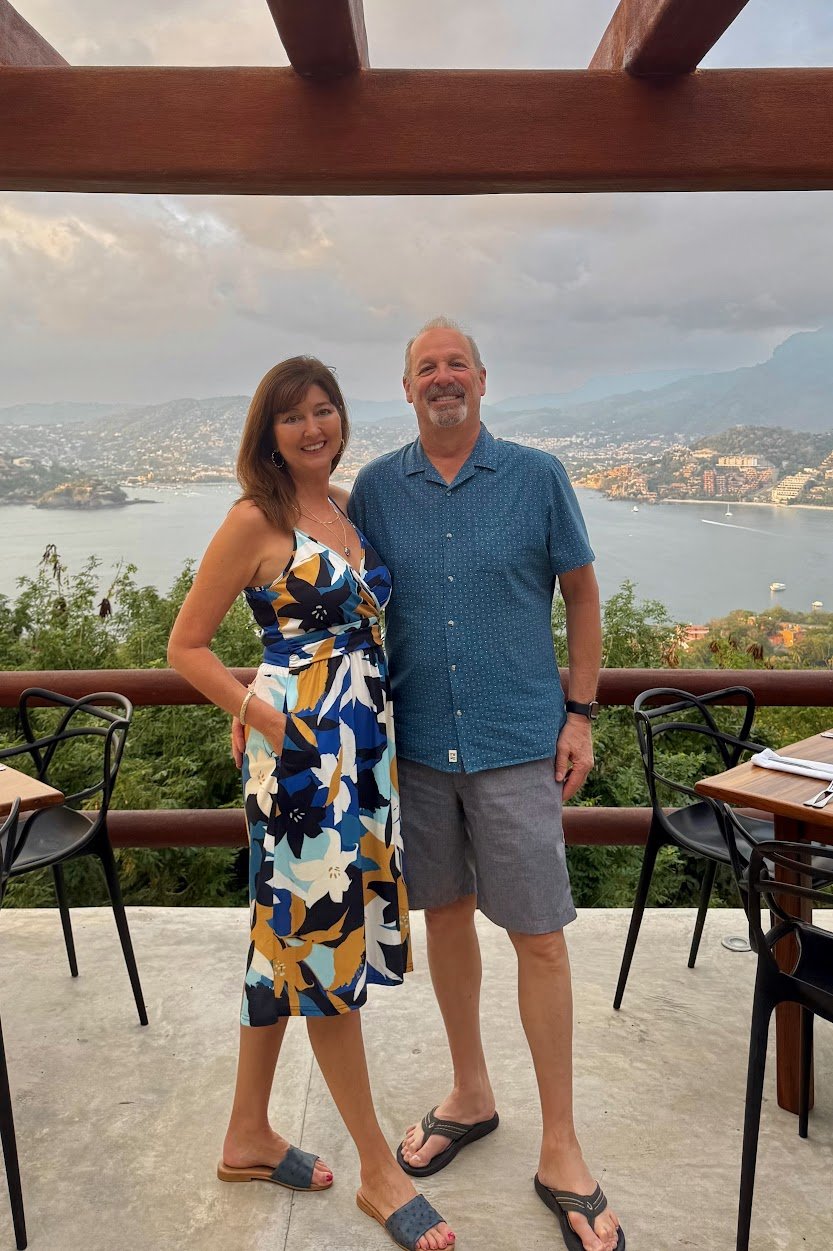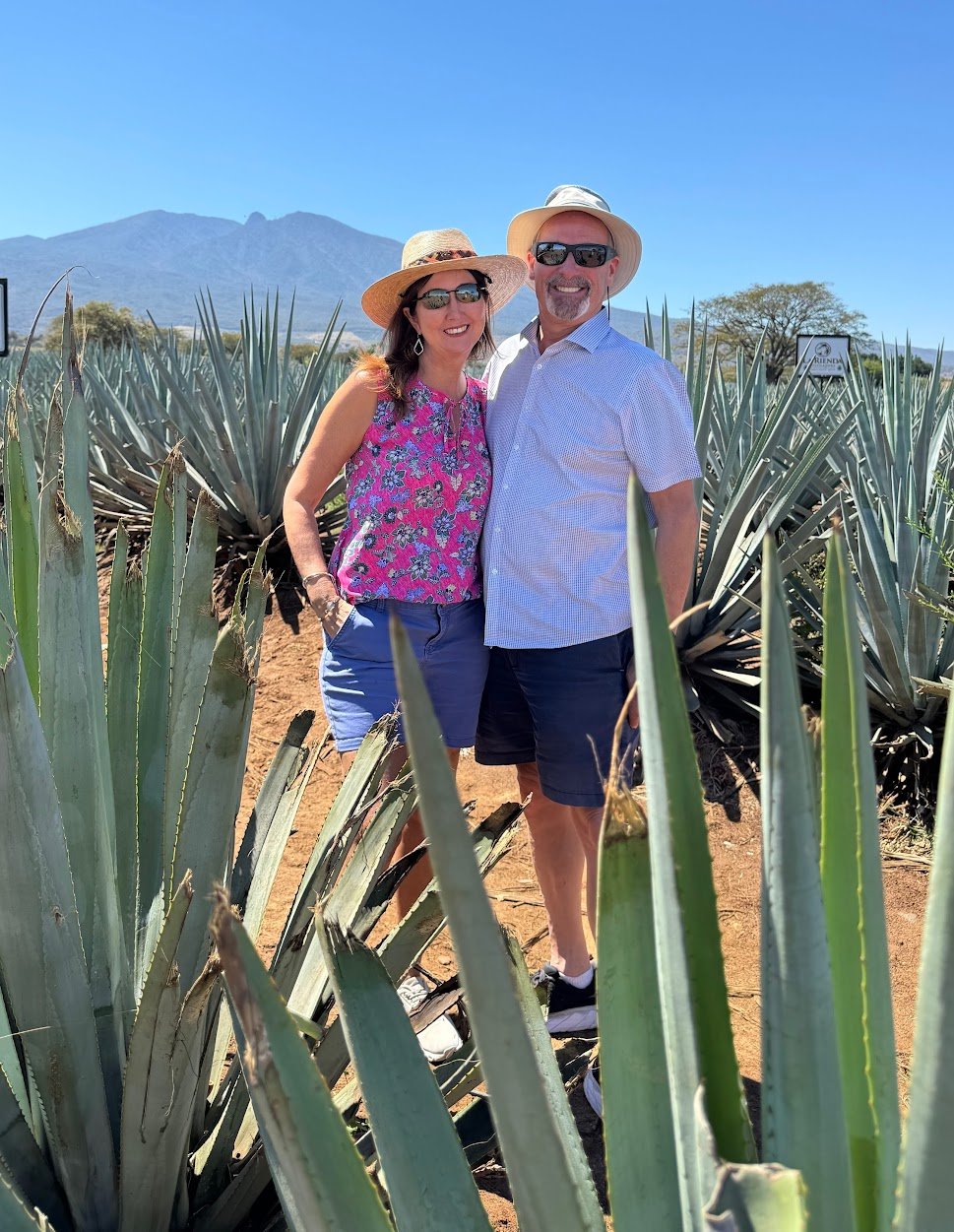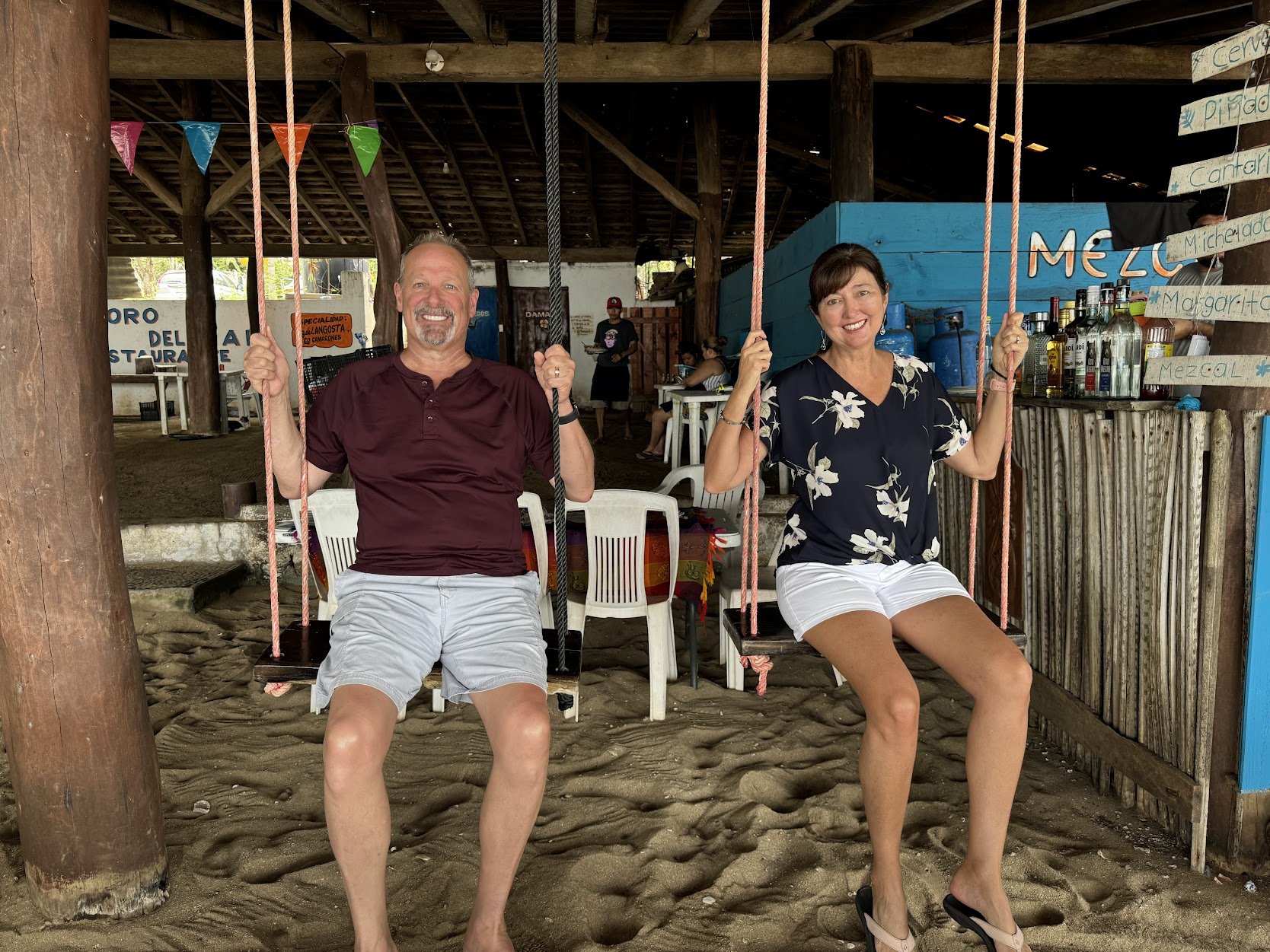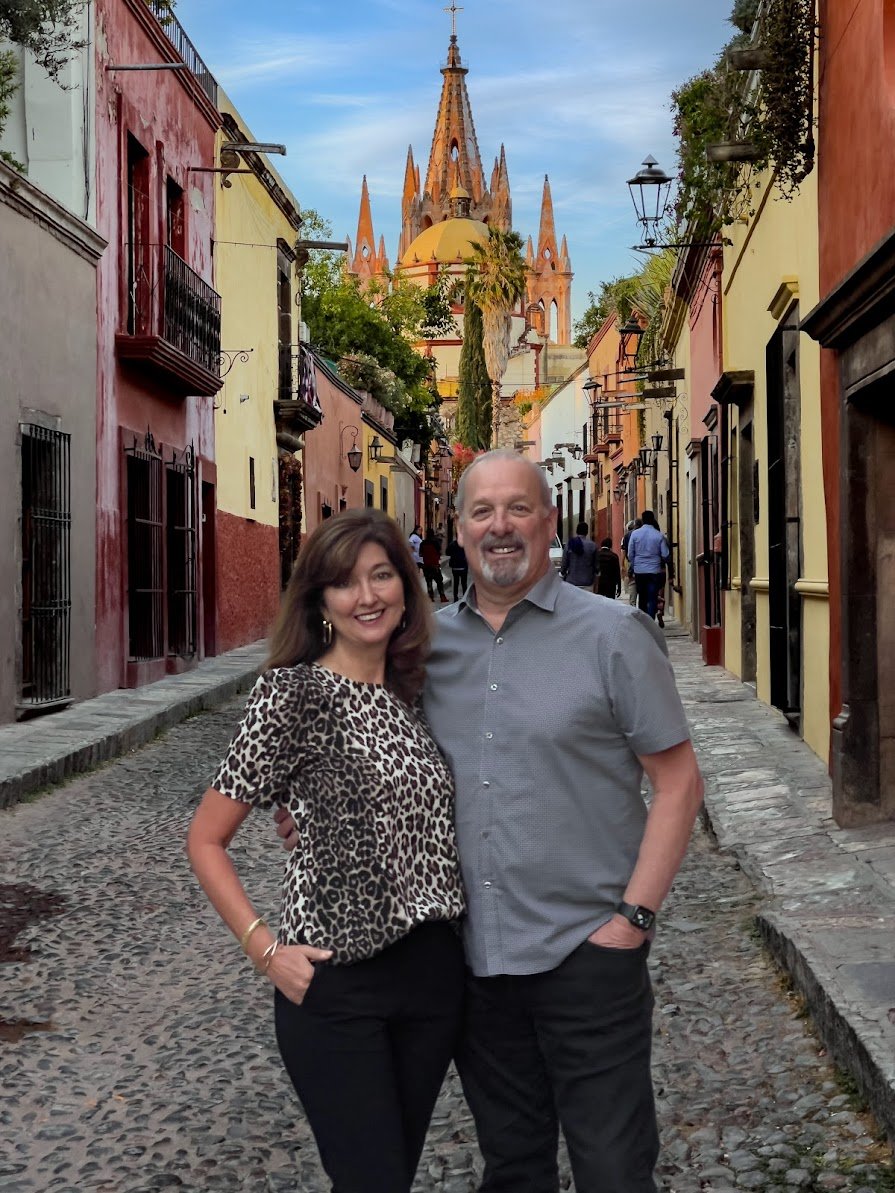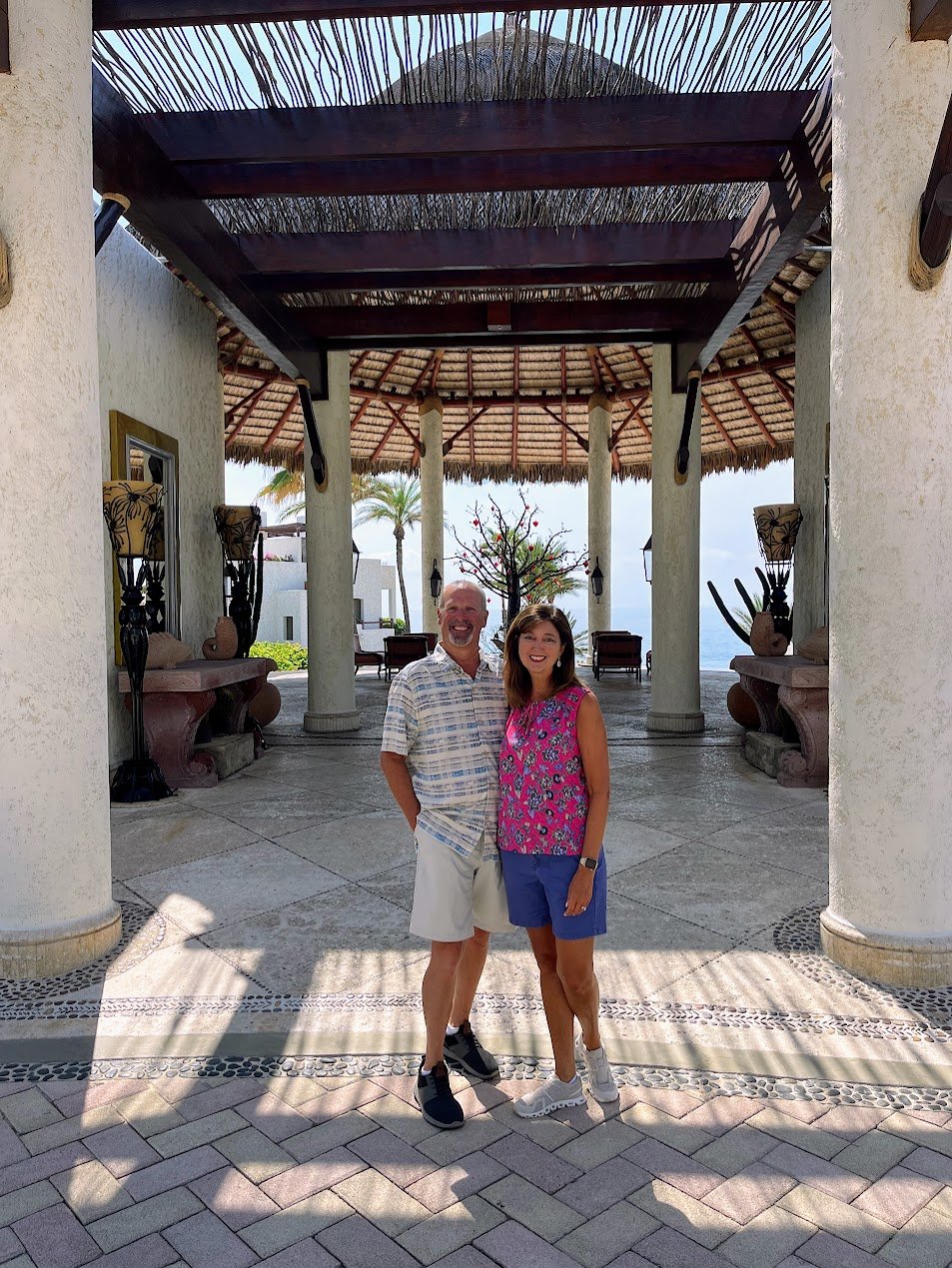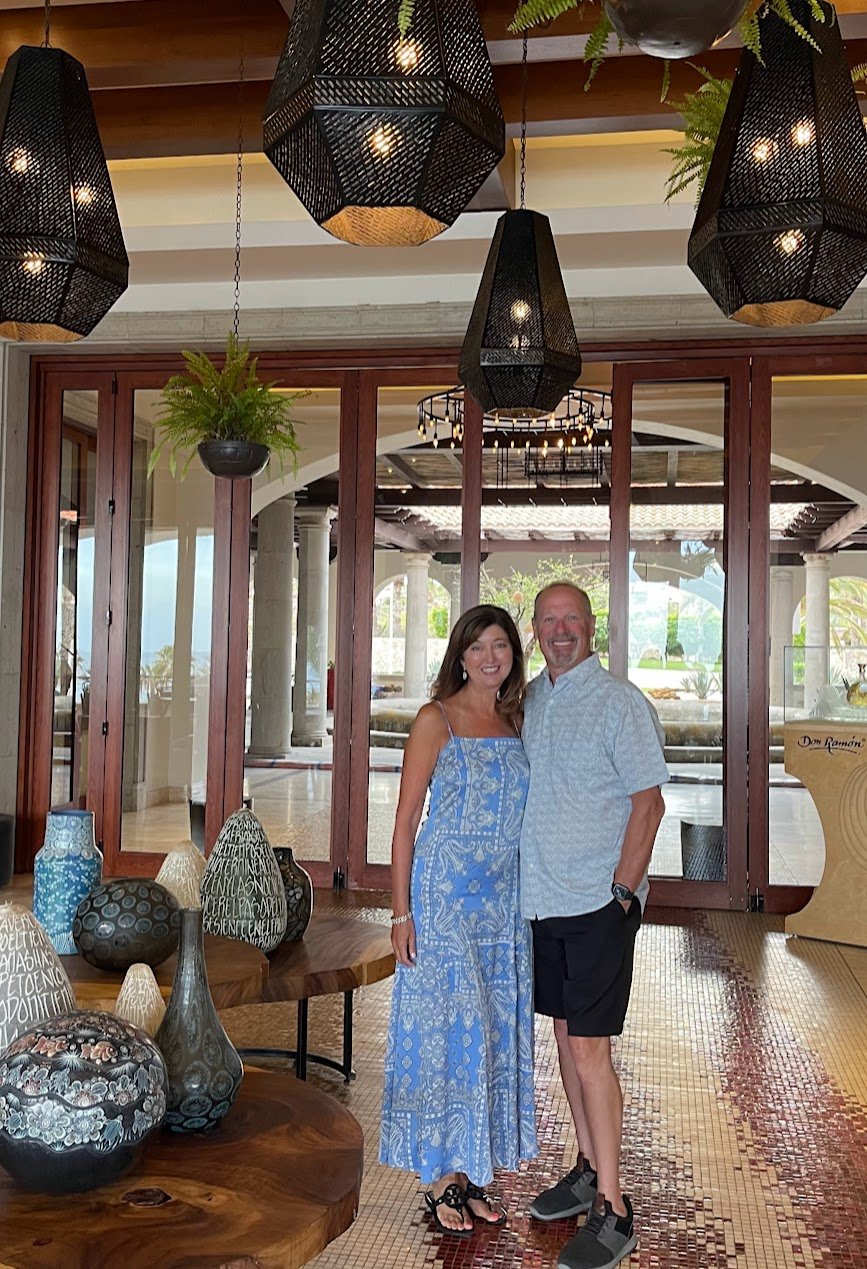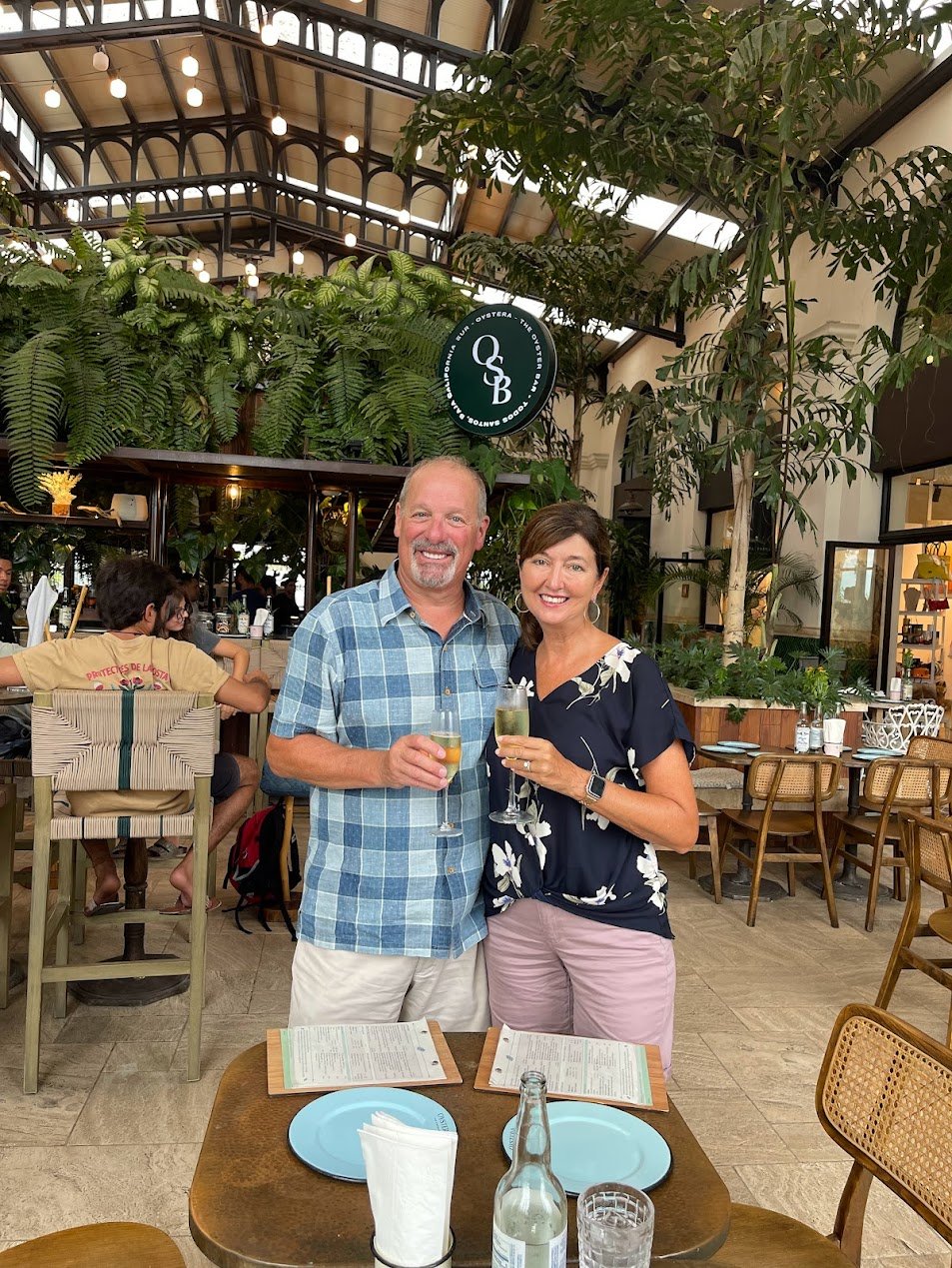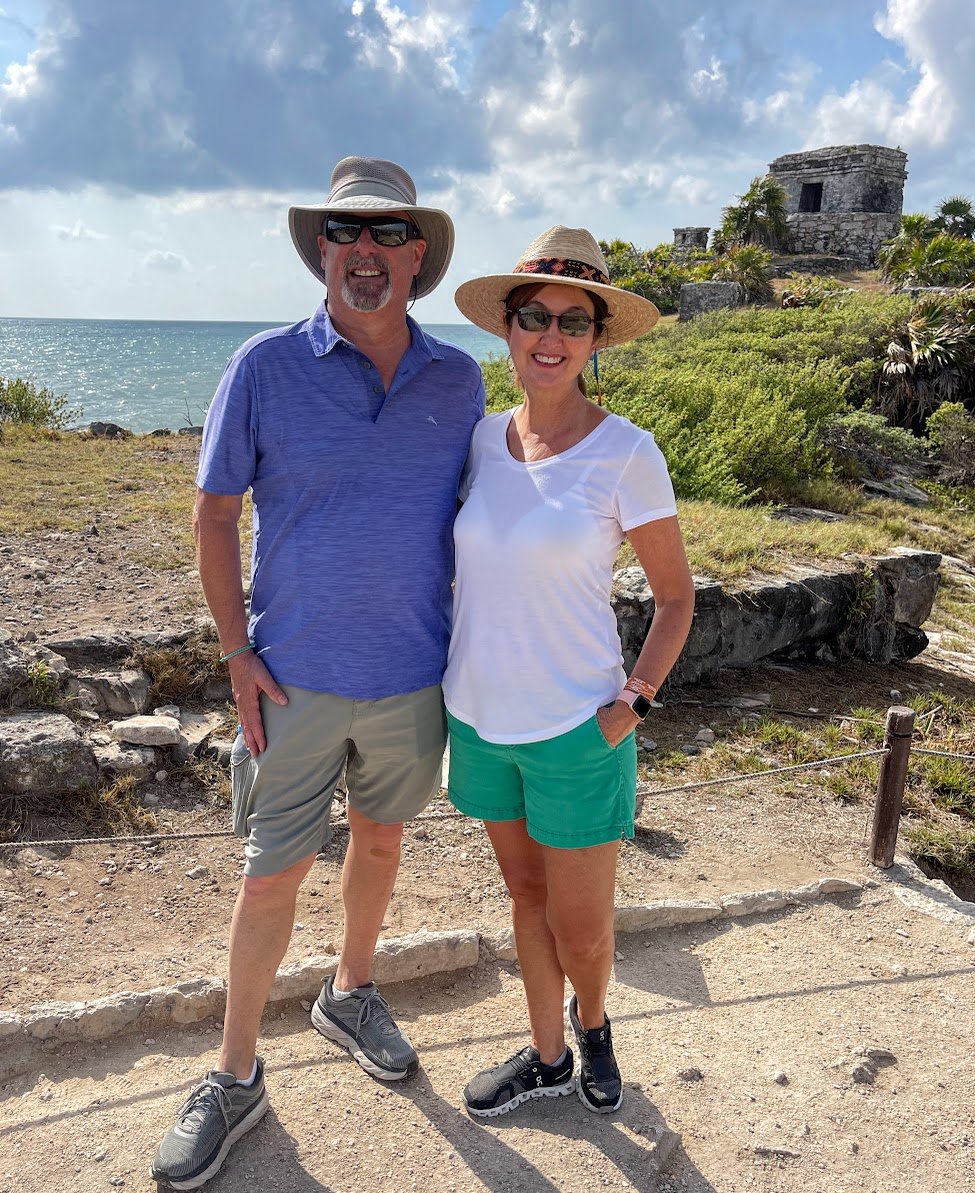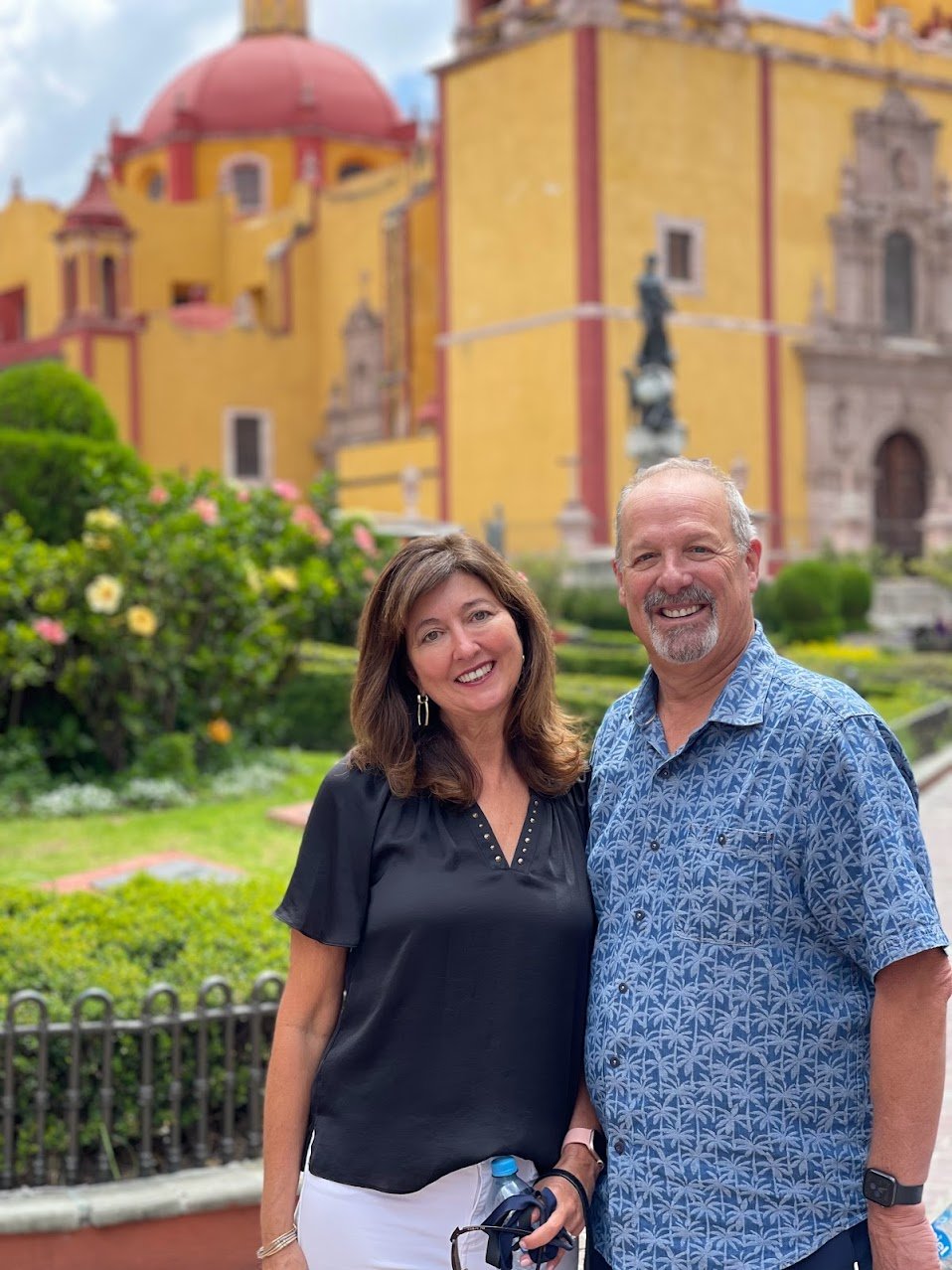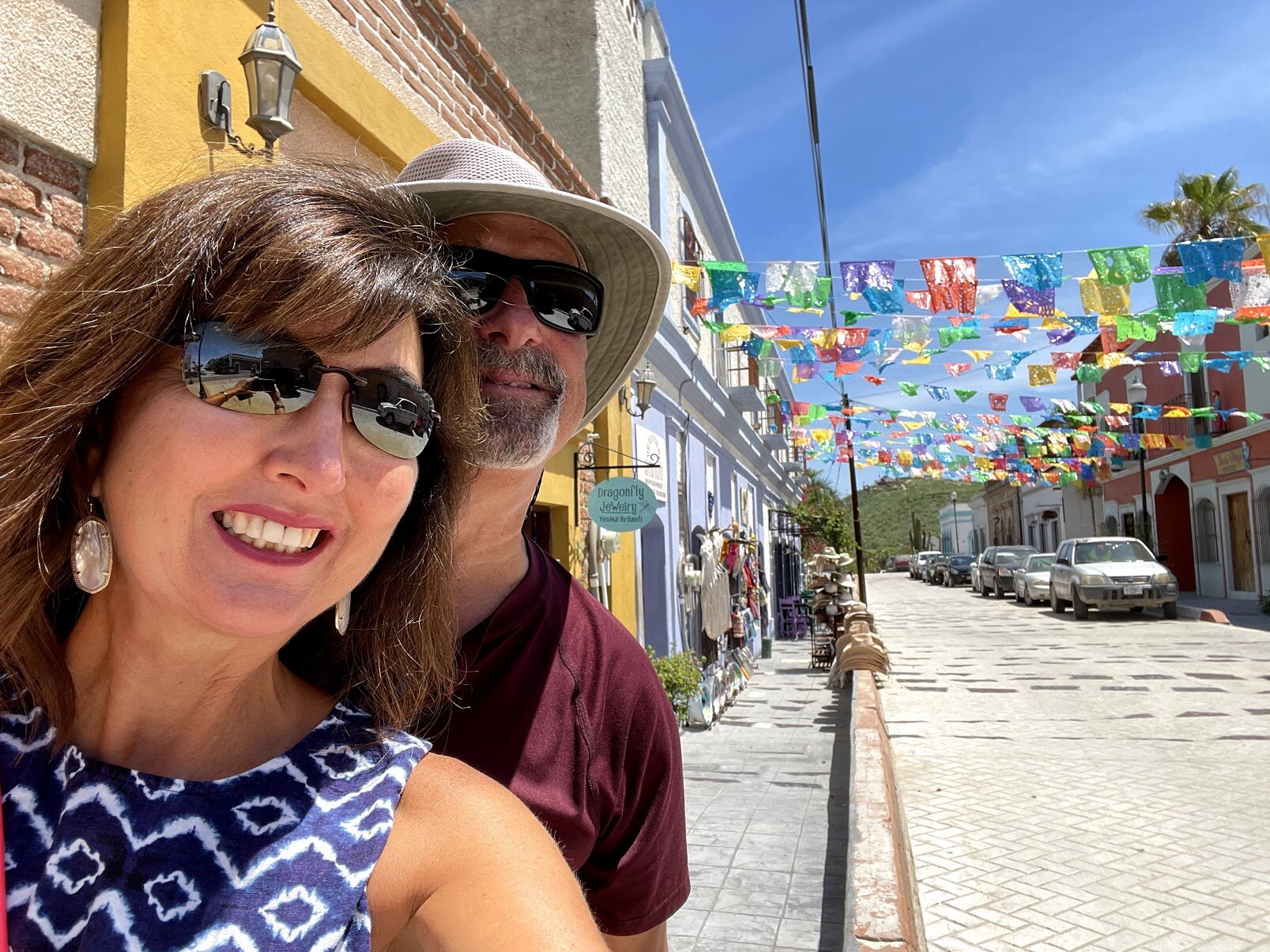Tour of Tequila, Mexico
Have you ever been to the wine country in Napa? Or through the wine region in Tuscany, Italy? Both have rolling hills, hundreds of miles of rows of grapes, all in beautiful locations. We recently had a similar experience with in a whole new region with, agave instead of grapes, on a tour of Tequila, Mexico. (Photo credit: Greg Cavanagh)
The State of Jalisco
Tequila sits in the state of Jalisco, about 1 and 1/2 hours outside of Guadalajara. Knowing we only had a day, we opted for a private tour. Our driver Lester picked us up right at our hotel, and began sharing his wealth of knowledge about the region and the tequila industry right away.
Like wine, tequila must be made from a specific plant, the blue agave, made in a specific region, Jalisco, Mexico. Also like wine, the entire industry is highly regulated from growth, through distillation, through bottling, and distribution.
I can’t express how beautiful this part of Mexico is, with the extinct Tequila Volcano against the backdrop of beautiful blue skies, and blue agave growing as far as the eye can see.
The first stop on this tour is a distillery that allowed tours. This is the advantage to having a tour guide, as most distilleries are not open to the public to just walk in. Only 1,700 distilleries in the world, all in Jalisco, are allowed to make tequila. How do you know it's true tequila? The bottle must say "100% Agave." You'd be surprised how many tequilas on the market in the US are not actually 100% agave.
The tequila making process is over a 250 year old. Below is the traditional method that cooks the pina, then smashes the pina all converting to a juice that is then fermented.
Here is the modern day process with automated machines. It looks very similar to something you’d see in a modern winemaking process.
We were, once again, with our best traveling buddies. It’s great to adventure with friends that share the same passion for travel, history and cultural education.
Again, like wine, we learned that some of the finest tequilas actually cave age in small barrels. This is outside one of the cool underground caves filled with aging tequila.
Time To Taste Tequila
Just like wine tasting, you learn the “proper” way to taste tequila. Did you know that when tasting tequila, first you take a sniff from below your lower lip rather than right under your nose? Otherwise, you smell only alcohol, rather than the nuances of the actual tequila.
There are 4 basic tequilas, Silver (made for mixing), Reposado, Anejo and Extra Anejo. Like wine, much of tequila is personal preference what you think tastes best.
There is a lot to learn about tequila, and taking a tour and tasting is a great way to understand more about this famous Mexican distilling process.
You can learn so much during a tour and tasting in the Tequila distillery!
Do you use agave as a sweetener or have you tasted an agave plant that has been processed (smoked)? In this region, agave is sold everywhere, including in roadside stands. It was time for our taste.
Agave!
It’s sweet and soft, tasting just like your favorite agave syrup. Fun to try!
The Town of Tequila Mexico
After the tour, it’s time for lunch. You quickly learn that most of the town of Tequila is owned by Jose Cuervo. After all, it is the oldest distillery in Mexico, over 250 years in business. They also own the popular hot sauce, Cholula and there is a Cholula Restaurant right in the main square in town.
Starting with guacamole made tableside is a must. The food is delicious and the margaritas great. Pro tip: When taking a day long private tour, treat your guide to lunch. It’s very appreciated!
The house of Jose Cuervo Tequila. Tours and tastings are available inside. It is a beautiful, immaculately maintained building.
The town of Tequila has been designated a World Heritage site by UNESCO. It is also a “Pueblo Magico,” or Magic Town, designated by the Mexican government. Both of these designations ensure the history, culture and traditions remain intact, giving tourists a great learning experience.
Maestro Dobel
This store for this higher end tequila was just beautiful. And yes, Maestro Dobel is also owned by Jose Cuervo. I was trying to sneak in a few snaps when the salesperson took my phone and positioned us for a picture!
Below is the official Jose Cuervo store. There were some gorgeous bottles and packaging making these fine tequilas very pricy.
This beautiful mural sits inside a government building right on the main square. It tells a version of the history of how tequila was discovered (from an ancient god) and shows all the sites that make up the region. What I thought interesting is that the 6 people in the middle, are not historic figures, they are simply the people that commissioned the painting.
In the Town’s Plaza
The town is very geared towards tourists with street vendors selling all types of goodies and souvenirs.
In addition, of course, all up and down the square, vendors sell every kind of tequila imaginable.
Soon you might hear in the square, a drum beat and the sound of sort of a flute. This means the “Voladores de Papantla” (flyers of the ancient dance) are getting ready for a short show. This is part of an ancient Mesoamerican tradition of the area. (Photo Credit: Greg Cavanagh)
The Voladores de Papantla begin their performance high above the buildings in the middle of the square. They are not paid, the city simply put the pole in place for them. While they are preparing for the performance, one of their members will come around to those watching. Be sure to tip them!
They circle the pole 13 times, which represents 52 years on the Aztec calendar. Their positions on the ropes makes them look like birds flying through the air. They eventually all reach the ground and the performance is over. This performance is one more reason that Tequila is a “Pueblo Magico.”
A Traditional Drink From Tequila
And it’s not a margarita! Since the clay pottery is part of the what makes Tequila a Pueblo Magico town, street vendors sell drinks in these souvenir cups. The traditional drink is made with tequila and a grapefruit type juice. Our guide insisted on buying one for me to try. It was good!
Such a fun experience in Tequila! There’s a lot more to see and learn, but start with a tour and tasting to begin to understand what makes the Tequila region really magical!












